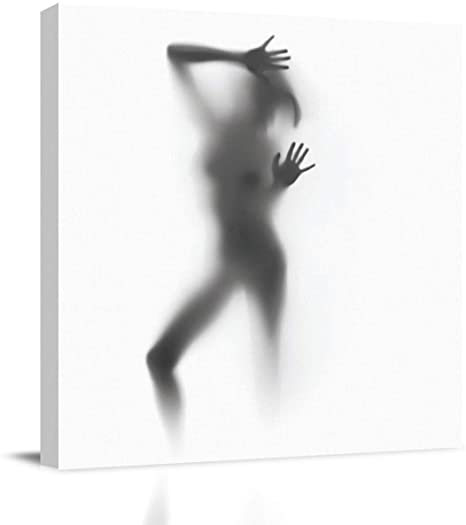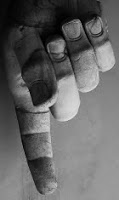Babel
Salt by Isaac Babel
Dear Comrade Editor, I want to tell you of some ignorant women who are harmful to us. I set my hopes on you, that you who travel around our nation's fronts, have not overlooked the far-flung station of Fastov, lying afar beyond the mountains grand, in a distant province of a distant land, where many a jug of home-brewed beer we drank with merriment and cheer. About this aforementioned station, there is much you can write about, but as we say back home: you can shovel til the cows come home, but the master's dung heap never gets no smaller. So I will only describe what my eyes have seen in person.
It was a quiet, glorious night seven days ago when our well deserved Red Cavalry transport train, loaded with fighters, stopped at that station. We were all burning to promote the Common Cause and were heading to Berdichev. Only, we notice that our train isn't moving in any way at all, our Gavrilka is not beginning to roll, and the fighters begin mistrusting and asking each other: "Why are we stopping here?" And truly, the stop turned out to be mighty for the Common Cause, because the peddlers, those evil fiends among whom there was a countless force of the female species, were all behaving very impertinently with the railroad authorities. Recklessly they grabbed the handrails, those evil fiends, they scampered over the steel roofs, frolicked, made trouble, clutching in each hand sacks of contraband salt, up to five pood in a sack. But the triumph of the capitalist peddlers did not last long. The initiative showed by the fighters who jumped out of the train made it possible for the struggling railroad authorities to emit sighs from their breasts. Only the female species with their bags of salt stayed around. Taking pity, the soldiers let some of the women come into the railroad cars, but others they didn't. In our own railroad car of the Second Platoon two girls popped up, and after the first bell there comes an imposing woman with a baby in her arms: "Let me in, my dear Cossacks," she says. "I have been suffering through the whole war at train stations with a suckling baby in my arms, and now I want to meet my husband, but the way the railroad is, it is impossible to get through! Don't I deserve some help from you Cossacks?"
"By the way, woman," I tell her, "whichever way the platoon decides will be your fate." And, turning to the platoon, I tell them that here we have a woman who is requesting to travel to her husband at an appointed place and that she does, in fact, have a child with her, so what will your decision be? Let her in or not?
"Let her in," the boys yell. "Once we're done with her, she won't be wanting that husband of hers no more!"
"No," I tell the boys quite politely, "I bow to your words, platoon, but I am astonished to hear such horse talk. Recall, platoon, your lives and how you yourselves were children with your mothers, and therefore, as a result, you should not talk that way!"
And the Cossacks said, "How persuasive he is, this Balmashov!" And they let the woman into the railroad car, and she climbs aboard thankfully. And each of the fighters, saying how right I am, tumble all over each other telling her, "Sit down, woman, there in the corner, rock your child the way mother's do, no one will touch you in the corner, so you can travel untouched to your husband, as you want, and we depend upon your conscience to raise a new change of guard for us, because what is old grows older, and when you need youth, it's never around! We saw our share of sorrow, woman, both when we were drafted and then later in the extra service, we were crushed by hunger, burned by cold. So just sit here, woman, and don't be frightened!"
The third bell rang and the train pulled out of the station. The glorious night pitched its tent. And in that tent hung star lanterns. And the fighters remembered their the nights of Kuban and the green star of Kuban. And thoughts flew like birds. And the wheels clattered and clattered.
With the passing of time, when night was relieved of its watch and the red drummers drummed in the dawn on their red drums, then the Cossacks came to me, seeing that I am sitting sleepless and unhappy to the fullest.
"Balmashov," the Cossacks say to me, "why are you so horribly unhappy and sitting sleepless?"
"I bow to you deeply, O fighters, and would like to ask you the small favor of letting me speak a few words with this citizen."
And trembling from head to to, I rise from my bunk from which sleep had run like a wolf from a pack of depraved dogs, and walk up to her, take the baby from her arms, rip off the rags it's swaddled in and its diaper, and out from the diaper comes a nice fat forty-pound sack of salt.
"What an interesting little baby, Comrades! It does not ask Mommy for titty, doesn't peepee on mommy's skirt, and doesn't wake people from their sleep!"
"Forgive me, my dear Cossacks," the woman cut into our conversation very coolly, "it wasn't me who tricked you, it was my hard life."
"I, Balmashov, forgive your hard life," I tell the woman "It doesn't cost Balmashov much. What Balmashov pays for for something, that is the price he sells it for! But address yourself to the Cossacks, woman, who elevated you as a toiling mother of the republic. Address yourself to these two girls, who are now crying for having suffered under us last night. Address yourself to our women on the wheat fields of Kuban, who are wearing out their womanly strength without husbands, and to their husbands, who are lonely too, and so are forced against their will to rape girls who cross their paths! And you they didn't touch, you improper woman, although you should have been the first to be touched! Address yourself to Russia, crushed by pain!"
And she says to me, "As it is I've lost my salt, so I'm not afraid of calling things by their real name! Don't give me that about saving Russia - all you care about is saving those Yids, Lenin, and Trotsky!"
"Right now our topic of conversations is not the Yids, you evil citizen! And by the way, about Lenin I don't really know, but Trotsky is the dashing son of the Governor of Tambov who, turning his back on his high social rank, joined the working classes. Like prisoners sentenced to hard labor, Lenin and Trotsky are dragging us to life's road of freedom, while you, foul citizen, are a worse counterrevolutionary than that White general waving his sharp saber at us from his thousand-ruble horse. You can see him, that general, from every road, and the worker has only one dream - to kill him! While you, you dishonest citizen, with your bogus children who don't ask for bread and don't run out into the wind, you one doesn't see. You're just like a flea, you bite and bite and bite!"
And I truthfully admit that I threw that citizen off the moving train and onto the embankment, but she, being brawny as she was, sat up, shook out her skirts, and went on her deceitful way. Seeing this uninjured women and Russia all around her, the peasant fields without an ear of corn, the raped girls, and the comrades, many of whom were heading for the front but few of whom would ever return, I wanted to jump from the train and either kill myself or kill her. But the Cossacks took pity on me and said, "Just shoot her with that rifle."
And I took the loyal rifle from the wall and wiped that blot off the face of the working land and the republic.
And we, the fighters of the Second Platoon, swear before you, dear Comrade Editor, and before you, dear Comrades of the editorial office, that we will deal relentlessly with all the traitors who pull us into the pit and want to turn back the stream and cover Russia with corpses and dead grass.
In the name of all the fighters of the Second Platoon, Nikita Balmashov, Fighter of the Revolution.




